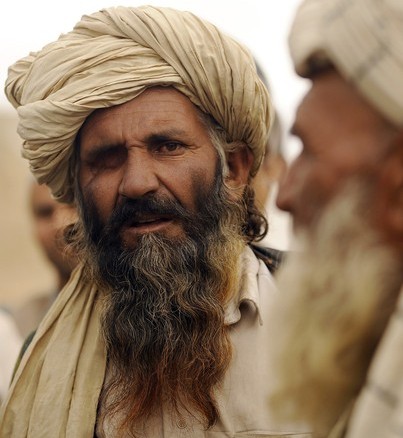
Hazara Democracy Advocates: Facing the Terror of the Kuchi-Taliban Coalition
Reading time: (Number of words: )
Kabul Press? - Hazara democracy advocates in Hazaristan, fervent champions of human rights and women’s rights, are enduring relentless attacks by Kuchi Pashtuns, who openly receive support from the terrorist group Taliban. These attacks, characterized by looting, environmental destruction, and land occupation, form part of a coordinated effort to displace Hazara democracy advocates from their homeland. The international community’s inaction is conspicuous, and with the Taliban in power and a government rooted in Pashtun ethnicity, the Kuchis are emboldened in their aggression.
Hazara democracy advocates, well-known for their commitment to democratic principles and human rights, have long suffered persecution and marginalization in the region referred to as Afghanistan. Recent waves of violence, orchestrated by Kuchi tribes, have exacerbated their plight.
Reports from Hazaras in #Afghanistan should be raising alarms🚨 In several regions, Kuchi Pashto have been cutting down trees in an attempt to force Hazaras out of their lands. #StopHazaraGenocide
— Jalé Akbari 🇺🇸 (@Jale_Akbari) October 3, 2023
Survivors in Daykundi, Oruzgan, Sar-e Pol, Ghazni, Baghlan, and Bamyan describe horrifying brutality, with Kuchi militants descending upon Hazara communities, looting homes, and setting properties ablaze. The senseless destruction of trees, critical for livelihoods and the environment, compounds the hardships faced by Hazara farmers.
The historical alliance between the Kuchis and the Taliban in terrorizing the Hazara population cannot be ignored. This dark history includes the tragic chapter of the Hazara genocide, a stark reminder of the violence endured by Hazara democracy advocates.
Furthermore, Pashtun nationalists have frequently employed the Kuchis to attack non-Pashtuns and seize their lands, adding another layer to the ongoing conflict.
Hazara leaders and activists accuse the Taliban of actively supporting the Kuchis in their campaign to forcibly displace Hazara and facilitate Pashtun settlement. This serious accusation aligns with a broader pattern of ethnic and sectarian violence that has plagued Hazaristan for years.
Afghan-Pashtun Taliban militants have forcibly confiscated 109 local Shops, 30 Vendor Booth, a local Girls School, and agricultural department of native Hazaras in Waras district of Bamiyan Province and have illegally distributed to Afghan-Pashtun Kochis.#StopHazaraGenocide pic.twitter.com/QejEUhU9cX
— Daichopan Azmo 🟦⬜🟨 (@daichopanazmo) October 4, 2023
Despite the severity of the situation, the United Nations and various international human rights organizations have chosen to remain silent, failing to take meaningful action against ongoing violence and historical atrocities against the Hazara population.
The international community must rise to the occasion and address ongoing aggression and atrocities. Immediate humanitarian relief is essential, alongside efforts to foster dialogue and reconciliation among the diverse ethnic and religious groups to prevent further violence and displacement.
Armed Kuchi Pashtuns with the cooperation district Province governor, have destroyed the trees & greenery of a local high school and threatened to kill the local peopel (Hazaras).
Hazaras are not only targets of violence by Taliban but also kuchis.
pic.twitter.com/137FhMFNh0— Homira (@TheHomira) October 2, 2023
The grim legacy of violence left by the Kuchi-Taliban alliance, including the Hazara genocide, underscores the urgent need for international action to restore peace and security in Hazaristan/ so-called Afghanistan. Swift and resolute measures are essential to end the suffering of the Hazara population and hold those responsible for these horrific acts accountable.
In October 2022, a powerful global campaign, #StopHazaraGenocide, emerged, sparking millions of tweets and demonstrations across more than 130 cities in various countries. Supporters of the movement raised the flag of Hazaristan as a symbol of solidarity, demanding an end to the Hazara genocide. This widespread outcry underscored the urgent need for international intervention to halt the ongoing atrocities against the Hazara democracy advocates. The campaign also highlighted the importance of the Genocide Convention, a critical framework that should be invoked when examining the Hazara genocide, emphasizing the need for international accountability and action to prevent further loss of life and suffering.

Poems for the Hazara
The Anthology of 125 Internationally Recognized Poets From 68 Countries Dedicated to the Hazara
Order Now








